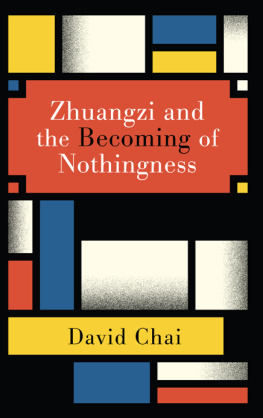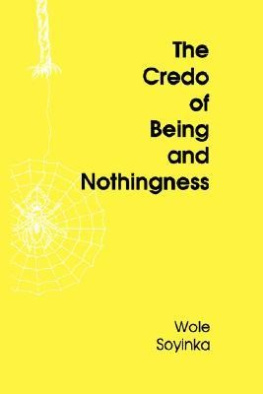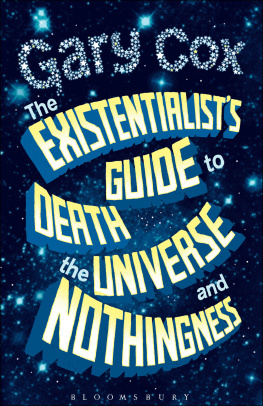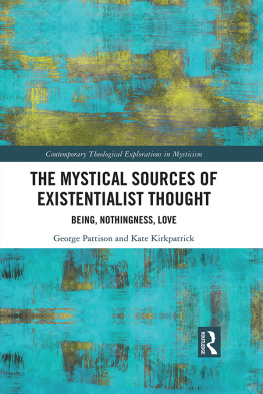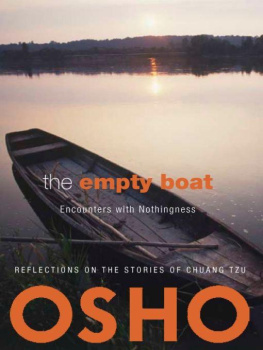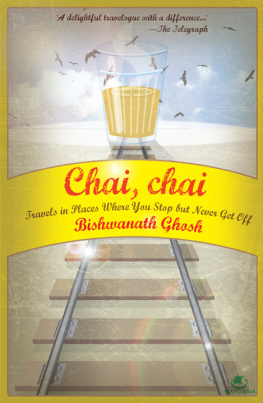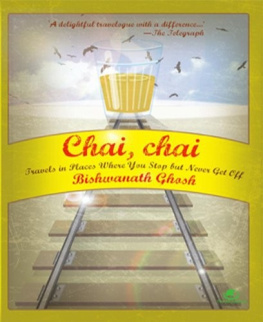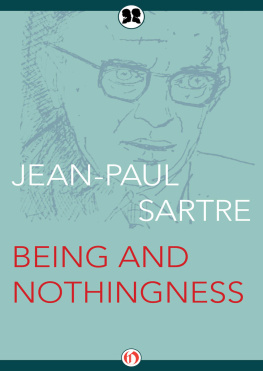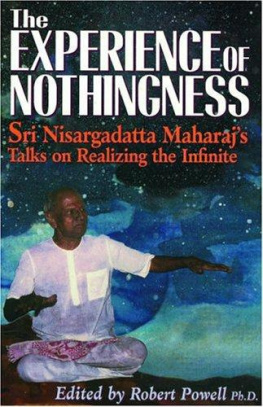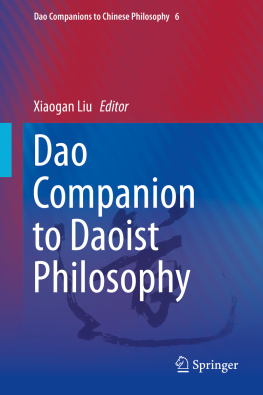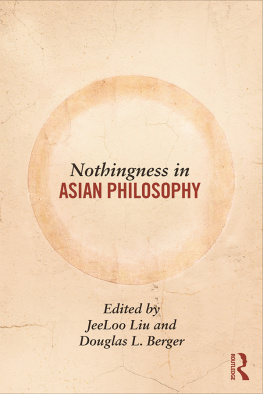Zhuangzi and the
Becoming of Nothingness
SUNY series in Chinese Philosophy and Culture
Roger T. Ames, editor
Zhuangzi and the
Becoming of Nothingness
DAVID CHAI
Published by State University of New York Press, Albany
2019 State University of New York
All rights reserved
Printed in the United States of America
No part of this book may be used or reproduced in any manner whatsoever without written permission. No part of this book may be stored in a retrieval system or transmitted in any form or by any means including electronic, electrostatic, magnetic tape, mechanical, photocopying, recording, or otherwise without the prior permission in writing of the publisher.
For information, contact State University of New York Press, Albany, NY
www.sunypress.edu
Library of Congress Cataloging-in-Publication Data
Names: Chai, David, 1971 author.
Title: Zhuangzi and the becoming of nothingness / David Chai.
Description: Albany : State University of New York Press, 2019. | Series: SUNY series in Chinese philosophy and culture | Includes bibliographical references and index.
Identifiers: LCCN 2018009433 | ISBN 9781438472676 (hardcover : alk. paper) | ISBN 9781438472690 (ebook)
Subjects: LCSH: Zhuangzi. Nanhua jing. | Nothing (Philosophy)
Classification: LCC BL1900.C576 C46 2019 | DDC 299.5/1482dc23
LC record available at https://lccn.loc.gov/2018009433
10 9 8 7 6 5 4 3 2 1
To Vincent Qing-Song Shen,
a teacher unlike any other.
Contents
Acknowledgments
I would like to express my gratitude to the staff at SUNY Press for making publication of this book a smooth and enjoyable process. I would also like to thank the two anonymous reviewers for their insightful remarks and patience in reading earlier versions of this manuscript. Part of chapter 2 appears in revised form as: Meontological Generativity: A Daoist Reading of the Thing Philosophy East and West , 64.2 (April 2014): 30318. Chapter 3 appears in revised form as: Zhuangzis Meontological Temporality Dao: A Journal of Comparative Philosophy , 13.3 (Sept. 2014): 36177.
Introduction
When it comes to expounding the truth of the world, are we to speak of the beings therein in the singular or the plural? If we go one step further and ask our question of the universe, will its cosmogony be colored by constancy or flux? Should we regard the cosmos and the myriad things therein as a constant singularity, a dynamic constancy, or a multiplicity in flux? What is at issue in these questions is a particular form of dialectics, one that involves how we define what is and what is not . One cannot stop there, however, for said dialectics must also account for how the is and the is not interact with that which is beyond . This last point has been a source of rich debate for philosophers and theologians alike insofar as the issue of absolutism creeps into the picture once we take the beyond or Ultimate as an entity whose standing is removed from the is and is not . Indeed, how we prioritize the is and the is not in a cosmogony of Ultimacy directly influences the ontological status we assign them.
On this point, common sense would have us believe that what is exists while what is not does not. Accordingly, to assume that the is not has ontological priority over the is will lead to a nihilistic consumption of the is by the is not . Thus the is holds priority over the is not because it turns the latter into a thing during the act of announcing itself.
Despite the division between old and new theories of ontology, the conundrum that belies us is how to envision the ground of the world in such a way that it is neither elusory (i.e., mystical) nor dependent upon assumptions (i.e., mythical). What is more, if we want to avoid radicalizing the relationship between being as the is and non-being as the is not , we are either forced to introduce a nihilistic supposition or simply abrogate one term in favor of the other. Western philosophy is the source of this dilemma insofar as it was the ancient Greeks who chose to nominalize the is not instead of seeing it as possessing normative value. The result of this decision was to define the is not as either an absolute nothingnessa substitute for an existent formor an estranged otherness. The same cannot be said, however, for the philosophical traditions of Asia and, in the case of this book, ancient Chinese Daoism.
In Chinas high antiquity, the Shang dynasty (16th11th centuries BCE) took the world to be under the purview of shangdi , the supreme deity. By the time we reach the Zhou dynasty (11th3rd centuries BCE), however, this worldview had fallen by the wayside, replaced by a cosmology of heaven ( tian ). Heaven (lit. sky) was a realm of immeasurable power and creativity while earth ( di ), the domain of living things, lacked such characteristics. This is why the ethical-political models of ancient China, and the individuals that epitomized them, strove to emulate the way of heaven and not that of earth. The heaven/earth dyad remained the dominant cosmological model throughout the Zhou but toward its end in the Warring States period, Daoism challenged its entrenchment by offering a cosmogonist model based upon Dao (ultimate reality). Given Dao surpasses heaven and earth in terms of its creative potential, a new conceptual dyad was developed to explain this occurrence: non-being and being. Unlike the ancient Greeks, Daoism sees non-being as complimentary to being, not its negating foil; it is a belief that led to furious debates in the Wei-Jin period (3rd5th centuries CE) over whether things are born from non-being or being.
This book examines the Daoist thinker Zhuangzi and his cosmogonist system of Dao, wu (nothingness), and you (being). Its purpose is to demonstrate wherein nothingness can act as the onto-cosmological fabric of Dao while serving as the medium through which it instantiates itself in the myriad things of the world. Much philosophical ink has been spilt over the nature and limitations of human self-knowing and whether or not these claims to truth are self-derived or the result of a higher, divine source. Knowledge of Dao, however, does not reveal the being of Dao but is rather a metaphorical expression of how Dao sustains and nourishes itself. The problem is that expressions of this nature cannot be grasped or transmitted using conventional epistemological norms. All we can do is intuit, situate, and resituate them against an ever-changing reality.
Very little is known of Zhuangzis personal life other than he hailed from the state of Song and reputedly left behind a work of one-hundred-thousand words in fifty-two chapters. According to the Historical Records ( Shiji ), Zhuangzi lived during the time of King Hui of Liang and King Xuan of Qi . He is also said to have turned down an offer to serve at the court of King Wei of Chu . In light of such historical evidence, as well as other indications scattered throughout the Zhuangzi , we can conservatively claim that Zhuangzi lived from 375300 BCE.
Two of the earliest known commentators to the Zhuangzi Cui Zhuan (fl. 290 CE) and Xiang Xiu (ca. 227272 CE)used a version of the text containing twenty-seven chapters, divided into Inner and Outer sections; what is more, both men differed in their opinion as to which chapters should be classified as Inner and which Outer. All of this testifies to a text whose structural framework was fluid at the time and subject to debate. And yet, many of the Zhuangzi commentaries referred to in this book use Guo Xiangs redacted text, not the fifty-two chapter text of Sima Biao (ca. 227272 CE), or the truncated text adopted by Cui Zhuan and Xiang Xiu. Bearing in mind such intratextual fluidity, I will refrain from making explicit references to the categories of Inner, Outer, and Miscellaneous chapters. To this end, passages and concepts attributable to Zhuangzi will not be differentiated from those written by his disciples or persons imitating his philosophical spirit; rather, I will refer to Zhuangzi and his text interchangeably.

